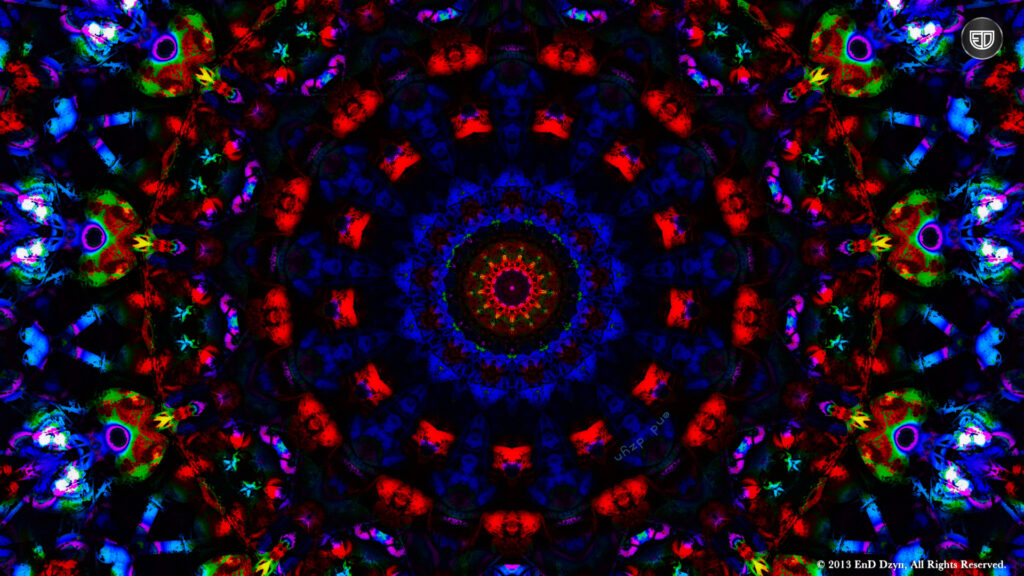LSD, psilocybin, DMT, and mescaline, are all psychedelic substances that can lead to mystical experiences and/or a closer connection to the world. People who use these substances often describe feeling more in touch with themselves and the world around them. And by that, I do not only mean fellow humans, but everything: fellow humans, animals, and nature. When feeling connected to something, there is an urge to protect it. So, could psychedelics help us to fight climate change?
A short introduction to psychedelics
Psychedelics are a subclass of hallucinogenic drugs whose primary effect is to trigger non-ordinary states of consciousness. The use of hallucinogens goes back centuries in many cultures, and some are still used in religious ceremonies to experience spiritual or heightened states of consciousness. Hallucinogens were used in psychotherapy in the 1960s, but this was halted mainly for political reasons (think about the Vietnam war, the hippie movement, Timothy Leary) until recently. Psychedelics are slowly reappearing in psychology and psychiatry as a viable way to treat anxiety, depression, PTSD, and more.
But besides the capacity of psychedelics to treat disorders, they can also be used by “healthy” people as well.
(I will write an article soon about psychedelics that is more in-depth)
Why could psychedelics help solve climate change?
To understand what psychedelics could solve, we must first dig into the problem: and that is the indifference towards and disconnection with nature.
“The ecological devastation we are experiencing now is a side effect of a nature disconnection,” said Sam Gandy, an ecologist and scientific assistant at Beckley Foundation, a psychedelic research group in the U.K. “Reconnecting to nature is something I see as one of the most important things we can be working towards right now as a species.”
The disconnection from nature
Through a complex story briefly simplified, the general separation of humans from nature in the West can be traced back to a few key historical moments, starting with the rise of Judea-Christian values around 2000 years ago. Before that, religions were there to connect us more to nature, whereas monotheistic religions disconnected us.
Prior to this moment, belief systems with multiple Gods and “Earth spirits” dominated. They generally considered the sacred to be found in nature, and humans as part of it.
But when Judaism and Christianity became dominant, their God, as well as sacredness and salvation were re-positioned outside of nature. The Old Testament taught that God made humans and gave them dominion over the Earth. Such values laid the foundations of modern anthropocentrism, a system of beliefs that frames humans as separate from, and superior to the non-human world.
In the 17th century, French philosopher René Descartes framed the world as essentially split between the realm of mind and that of inert matter.
Descartes saw humans as separate and superior to non-human animals, who were considered to be mindless machines to be mastered and exploited at will. His work was highly influential in shaping modern conceptions of science and human/animal identities in Western society.
Philosophers were among the first to suggest that it is these attitudes that cause the world’s environmental crisis. For instance, when we talk of “natural resources”, we are suggesting that the Earth’s fabric holds no value apart from what it provides us. That leads us to exploit it recklessly.
So, what can we do?
Reconnecting to nature
In this part, I would like to quote a part of a speech by Alan Watts to illustrate his idea that we are part of nature itself. That we are, in some sense, the Big Bang.
“Astronomers say there was a primordial explosion, an enormous bang billions of years ago which flung all the galaxies into space. Well, let’s take that just for the sake of argument and say that was the way it happened.
It’s like you took a bottle of ink and you threw it at a wall. Smash! And all that ink spread. And in the middle, it’s dense, isn’t it? And as it gets out on the edge, the little droplets get finer and finer and make more complicated patterns, see?
So in the same way, there was a big bang at the beginning of things and it spread. And you and I, sitting here in this room, as complicated human beings, are way, way out on the fringe of that bang. We are the complicated little patterns on the end of it. Very interesting.
But so we define ourselves as being only that. If you think that you are only inside your skin, you define yourself as one very complicated little curlicue, way out on the edge of that explosion. Way out in space, and way out in time.
Billions of years ago, you were a big bang, but now you’re a complicated human being. And then we cut ourselves off, and don’t feel that we’re still the big bang. But you are. Depends on how you define yourself. You are actually—if this is the way things started, if there was a big bang in the beginning—you’re not something that’s a result of the big bang. You’re not something that is a sort of puppet at the end of the process. You are still the process. You are the big bang, the original force of the universe, coming on as whoever you are.
When I meet you, I see not just what you define yourself as—Mr. So-and-so, Ms. So-and-so, Mrs. So-and-so—I see every one of you as the primordial energy of the universe coming on at me in this particular way. I know I’m that, too. But we’ve learned to define ourselves as separate from it.”
This sounds quite controversial. We are not used to this way of thinking. Not used to being a part of nature itself. If the problem all along was the disconnection from nature, then to solve it must be a reconnection with nature, right?
We can read this piece of Alan Watts and understand what he’s saying, but that doesn’t mean that we necessarily feel what he’s saying. Reading it doesn’t mean we’re instantly connected to nature. Connection is a feeling, something that transcends the capacity of the thinking mind. To be connected is to feel connected, and that is where psychedelics come in.
When taking psychedelics, the connectedness to nature grows, which may lead to growing respect for it. It can shake us out of our rigid belief systems, opening us up to new perceptions of the world.
And maybe then, we will finally realize that nature is not our enemy, but a friend to cooperate with.
“Our estrangement from nature and the unconscious became entrenched roughly two thousand years ago, during the shift from the Age of the Great God Pan to that of Pisces that occurred with the suppression of the pagan mysteries and the rise of Christianity. The psychological shift that ensued left European civilization staring into two millennia of religious mania and persecution, warfare, materialism, and rationalism.
The monstrous forces of scientific industrialism and global politics that have been born into modern times were conceived at the time of the shattering of the symbiotic relationships with the plants that had bound us to nature from our dim beginnings. This left each human being frightened, guilt-burdened, and alone. Existential man was born.” – Terrence McKenna
(Although still illegal in most parts of the world, it is quite easy to get your hands on psychedelics. I do not recommend you use them without proper research and without guidance. For advice or guidance, always conduct an expert/therapist in this field.)
Sources:
https://tocaboca.com/magazine/nature-deficit-disorder/
https://www.goodreads.com/quotes/130841-it-s-like-you-took-a-bottle-of-ink-and-you

